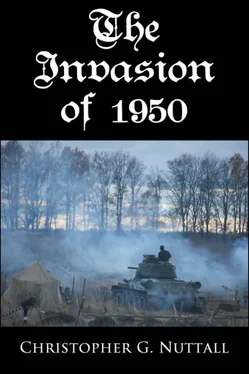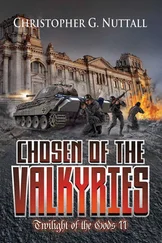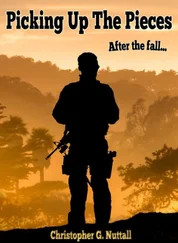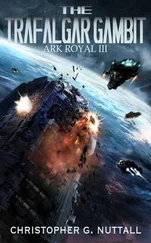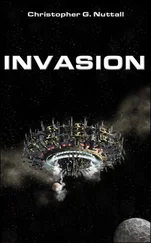He paused. “The Germans, like us, run exercises on a regular basis for individual units,” he continued. “As far as we have been able to determine, they have never run more than three exercises for army units simultaneously, let alone all four of their services, apart from the big one in 1948. It’s a weird coincidence, if indeed it is a coincidence. I think the Germans are trying to prepare for an invasion of Britain.”
There was a brief babble of conversation. “We have several trade deals going with the Germans at the moment,” Lord Halifax said, finally. “Why would they want to break up those deals by starting a war?”
“We had trade deals with them back in 1938,” Churchill rumbled, his bass voice silencing everyone else. “How long do you think we have?”
“It’s impossible to estimate,” DeRiemer admitted. “They could start bombing us at once and then attempt to drive the Royal Navy out of the Channel. Or they could be making sure that they have everything in readiness before they start the offensive.”
Churchill looked over at Atlee. “Clement, you will remember the days when the Germans bombed us before they considered an invasion,” he said, grimly. “We cannot let them have another chance.”
“That’s true enough,” Atlee agreed. “If we were to launch a low-level preparation campaign of our own…”
“The deals we have with Germany are vitally important,” Lord Halifax snapped. “We cannot risk losing their goodwill by implying that we don’t trust them!”
Churchill’s eyes flickered with anger. “Are you prepared to risk the safety of this country on your trade deals?”
“Winston, please,” the Home Secretary said. “You know that we are still in a precarious position because of the expenditures from the last war.” DeRiemer noted that he carefully did not point out that that had been Churchill’s war. “We have a major debt to our American cousins that we need to service, we have endless problems with extracting anything from the empire these days, and we have a very shaky manufacturing sector. We must, if you will pardon the expression, cut our coat to suit our cloth… and we have very poor cloth indeed.”
He paused, dramatically. “In effect, we have a constantly declining economy…”
“I am aware of the details,” Churchill interrupted. “I ask you if you are aware of the kind of man Herr Hitler actually is?”
“No,” Eden said. “I have never met him. What I have met are tables and charts and industrial statistics that prove that Britain is on the verge of collapse. We require everything we can get in the way of hard cash and we have very few sources. We cannot export much to America because… frankly, the Americans make it better than we do. We can only export some items to the empire and as those bonds fray, so do the rest of the economy. If we didn’t have the bargains with Germany, we would be in a much worse state.”
Churchill looked over at Atlee. “I fail to see any reasonable grounds for refusing to ensure that we get our own forces ready, maybe even conduct a few exercises of our own,” he said. “If Hitler does intend us ill, we could be ready for him when he comes and catch his forces before they catch us on the ground. If he doesn’t intend to strike us and his forces stand down and return to their normal levels, then we can claim that it was all a drill as well and say nothing more.”
Eden leaned forward. “Winston, I believe that you are running an exercise with Home Fleet at the moment?”
Churchill, First Lord of the Admiralty, nodded. “Admiral Fraser is running an exercise and the Germans have taken a surprising amount of interest in it,” he said. “The exercise was intended, at least in part, to see how quickly Home Fleet could react if the Germans did send their fleet out into the North Sea, as they did years ago with the Bismarck . That is not, however, a complete exercise; we should, at least, ensure that all of our units are warned that there might be a state of hostilities between us and the Reich .”
Lord Halifax coughed. “Would we not have ample warning if the Germans launched an attack against us?”
It took DeRiemer a moment to realise that the question was aimed at him. “We have fairly good radar coverage over Britain and even over parts of France,” he said, carefully. “The Germans now have much faster aircraft than they did during the last war, so we would have a correspondingly shorter time to react and get our own aircraft into the air. If we failed to get the aircraft into the air in time to meet them, the Germans would have ample time to hurt us before we could react.”
He paused. “The Germans also have vastly more aircraft than we have,” he admitted. “We concentrated on fighters, rather than bombers, but they have built at least seven hundred jet bombers and well over two thousand fighters. Not all of them are up to current standards, but they have no shortage of aircraft to deploy against us. It may also give them a chance to hurt Home Fleet before it comes into contact with the German Navy.”
Atlee exchanged looks with Churchill, and then tapped once on the table. “It is true,” he said, nodding to Lord Halifax, “that our relationship with Germany is of vital importance and we should not jeopardise it lightly. We need German supplies to remain a functioning nation, particularly now given the fact we do not have such access to American markets. We also have to worry about the past performance of Hitler’s regime when it comes to attacking nations without warning. Are there any signs of increased German forces in Egypt?”
“Yes, Prime Minister,” DeRiemer confirmed. “The Italians formally hold Egypt, but the Germans maintain very large forces within the nation, despite the opinion of the natives. That force could be attacking the Suez Canal Zone and punch its way into Palestine and Iraq within a day if Hitler gave the orders. They reinforced it quite heavily over the last couple of weeks.”
“And if they go into Palestine, there’ll be a bloodbath,” Atlee said. A fundamentally decent man at heart, he had been shocked when the first reports of the fate of European Jews had begun to sink into his mind. He had even given asylum, despite German protests, to a Jewish family that had somehow escaped the Netherlands and reached Britain. “I want to ensure that every unit gets a warning that there might be some trouble coming and readiness is to be increased accordingly.”
“It’s not strong enough,” Churchill said. “We should be flying regular combat air patrols over Britain and preparing the defences.”
“It’s all we can do,” Atlee said, tiredly. “Winston, I understand your concern, but there are other issues involved here.”
He looked over at DeRiemer. “Thank you for your report,” he said. “Please remain available outside the room for the remainder of the meeting.”
DeRiemer nodded once and withdrew back into the waiting room. He hadn’t realised just how much poison there was between the senior members of the government, not until he’d seen them at first-hand and realised what was going on. Eden wanted to be Prime Minister, Lord Halifax wanted to be a man of influence… but the former knew that his position was weak and the latter knew that no one trusted him since he had betrayed Churchill. Atlee’s own position was weak because of the weakening economy; Churchill’s position was weak because he was associated with the last government, which he’d headed. He, at least, had taken the warnings seriously…
But he wasn’t heeded. DeRiemer remembered Churchill’s speech in Parliament about an Iron Curtain descending over Europe and knew that far too few people believed him. DeRiemer believed him, knowing what he did about the fate of people under German rule, but who else believed him? Most people preferred not to think about the monster crouching on the other side of the Channel, preparing to pounce on Britain…
Читать дальше
